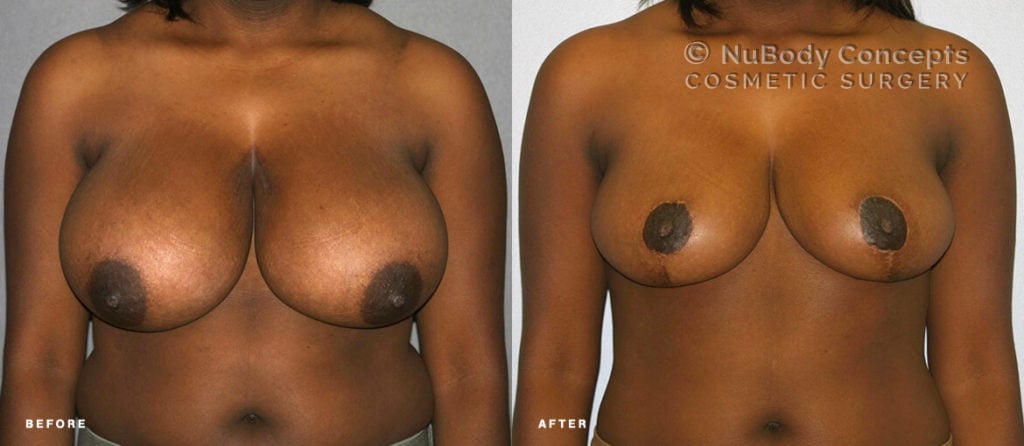
Medically reviewed by Dr. John Rosdeutscher – Written by Sine Thieme
What to Expect After Breast Reduction Surgery
Breast reduction surgery is an outpatient procedure. It does not require general anesthesia and is typically performed under IV sedation and a local anesthetic. Once the procedure is complete, you may spend some time in supervised recovery until your anesthetic wears off, but you will usually be able to go home that same day. When you are sent home, you will likely have your chest bandaged and may be given a surgical bra to give you added support.
Knowing what to expect is important for a smooth recovery. Below we discuss what you can expect after your breast reduction surgery including a timeline.
Recovery Timeline After Breast Reduction
Post-Op Instructions
It is important to make sure you ask your plastic surgeon what post-op instructions you should follow and if there are any activities to avoid, and for how long. If you haven’t been given any information, here are some questions to ask:
- Where will I be taken for my initial recovery after my breast reduction?
- Which medications should I be taking after my surgery?
- How often should I change or remove my bandages on my breasts?
- Should I return to the office to have my stitches removed and if so, when?
- When will I be able to resume daily activities and light or heavy exercise?
- When should I return for a follow-up?
The First Day
Breast reduction surgery typically lasts about 2-3 hours. Most patients return home on the same day. Your surgeon will likely ask you to have a friend or family member drive you home and observe you while the anesthesia wears off.
Following your procedure you’ll be asked to wear a support bra. This will help minimize swelling and give support to your breasts during healing. A tube may also have been placed under the skin to allow any excess fluids to drain away. Your home care instructions should include if there are any medications you should take, how to care for the drain, how to watch the surgical site for potential concerns, and when it will be time for your follow-up appointment.
Once you are back home, you will probably feel groggy or even nauseous from the anesthesia. You might also experience tenderness and/or mild pain in your breasts when the anesthesia begins to wear off.
The First Week
During the first few days post-operation, you can expect to feel considerable soreness and may experience loss of sensation near the surgical site for the first few weeks. Your surgeon will most likely prescribe pain medications to help keep you comfortable during your initial recovery period. Gently placing ice packs on top of the bandages may be recommended to help alleviate discomfort and any pain or swelling, but make sure you first check with your surgeon.
Showering or bathing will be permitted after the first few days post-op, but you may need assistance getting dressed and performing certain tasks as it may take time for you to recover full range of motion in your chest and shoulders.
Sometimes during the first week of recovery, most patients will be asked to see their doctor or a nurse for a follow-up. They will check the surgical site to make sure it heals properly. If you have had stitches placed, they will also remove them and/or any bandages.
This is also a good time to ask about scar treatment such as creams and ointments.
Most women are able to return to work 4-5 days after their breast reduction. If you have a physically demanding job that includes heavy lifting, you may need to delay your return to work until 2-3 weeks post-op. As always, it is important to listen to your body and to give it the rest it needs.
First Month to Six Weeks
During the first two to three weeks of your recovery you may feel some discomfort and tenderness in your breasts, especially while any swelling and bruising persists. This is normal. You’ll typically be given prescription pain medication for the first few days, and then switch to over the counter painkillers as needed. You should not be in pain for longer than the first several days after your procedure.
Symptoms you might experience in the first 4-6 weeks include:
- Burning sensations
- Numbness
- Loss of sensation around the areolas and nipples
- Pain
Again, this is in the normal scope of what to expect after a breast reduction. You should also limit your physical activity during the first 4-6 weeks post-op, as straining and overexerting yourself can affect the integrity of your sutures as well as the healing process.
Swelling and bruising should subside, however, after about 6 weeks. This is when most women will be able to fully return to their normal physical and work activities. At this time, you may also return to wearing any bra you like, although you should ask your surgeon before you stop wearing your support bra.
6 Months to a Year
While you will have totally recovered from your breast reduction by 6 months, you will continue to notice a change in your scars. They start out bright pink or red and may have a slightly puffy or lumpy appearance. Over time you will see a gradual fading of color to eventually white. If your scar tissue starts out raised, this is no cause for alarm – it will eventually flatten into thin white lines and nearly imperceptible.

Can I Breastfeed After a Breast Reduction?
Breast feeding after a breast reduction is also referred to as BFAR. This has been a hotly debated topic in the past, and the answers are still evolving. The good news is, your outlook has improved in recent history. the reason for this is that plastic surgery techniques have evolved so that plastic surgeons today use techniques that focus on preserving the nipple as well as the milk ducts.
In short, it is possible to breastfeed after having had a breast reduction. But it is worth informing yourself about this topic to be absolutely sure you are not making a mistake.
Learn more about breastfeeding after a breast reduction.
Is a Breast Reduction Permanent?
A breast reduction is designed to be permanent, so it is important to weigh all options before you have the procedure. However, breast volume can and does change during pregnancy, childbirth, and breastfeeding. Most likely your breast size will temporarily increase and then drop back to the size after your reduction.
Are you considering a breast reduction in the near future? Contact us today to find out how we can serve you. If you are ready to get started, use the pink button to schedule a consultation with our board-certified plastic surgeon in Nashville or Memphis.















